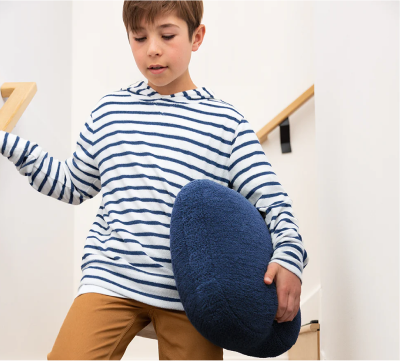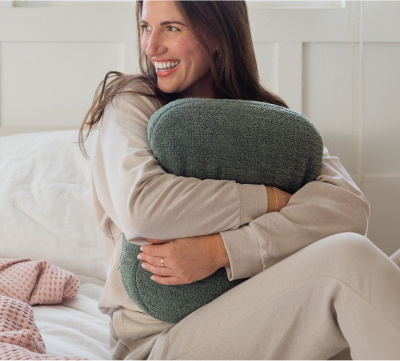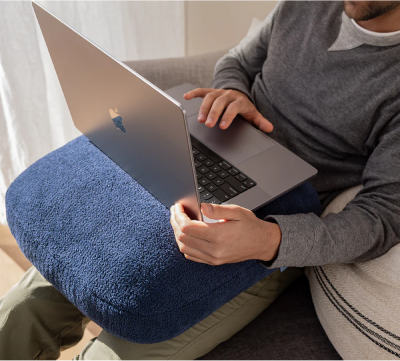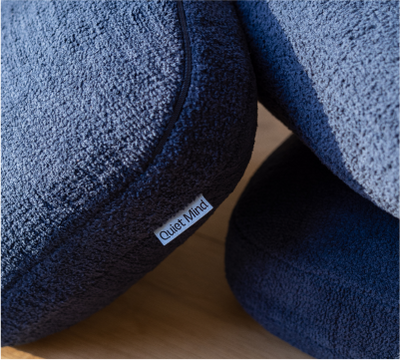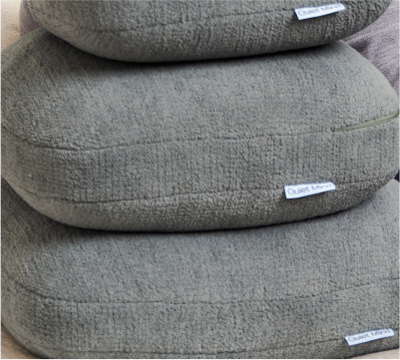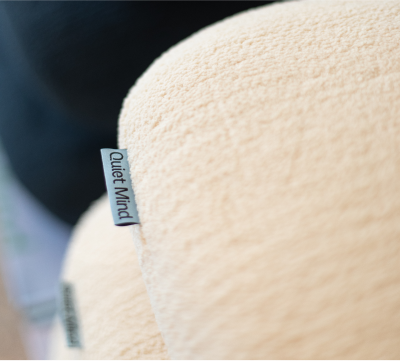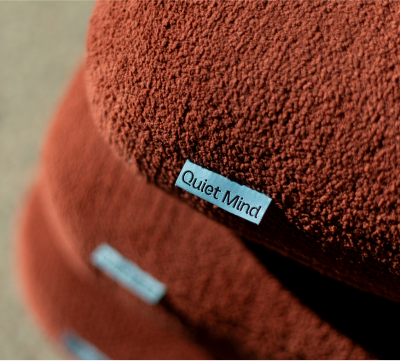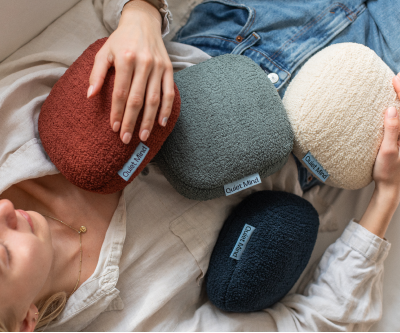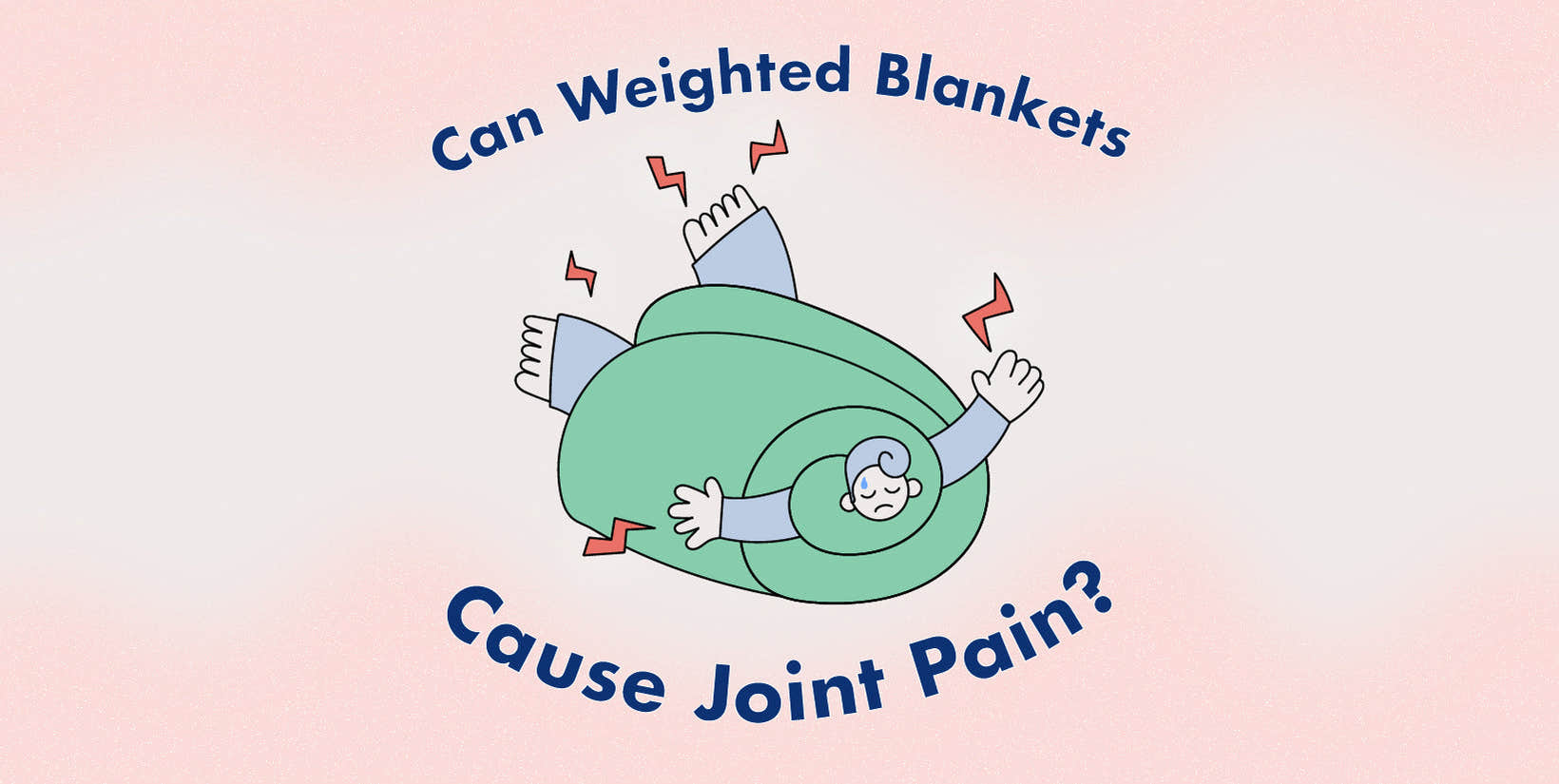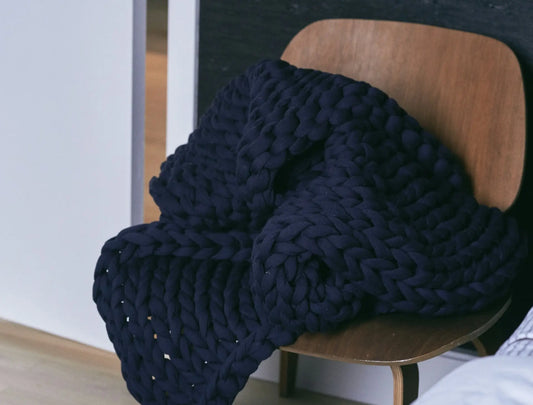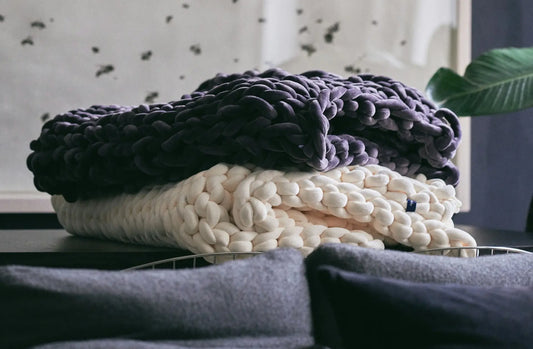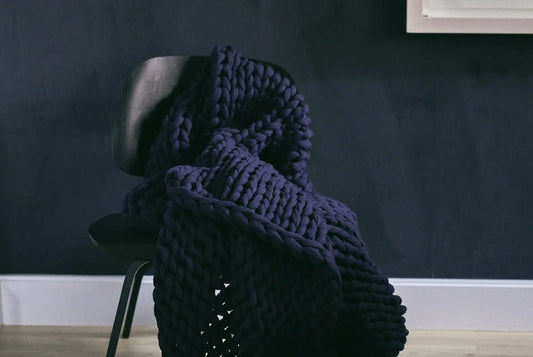If you’ve ever tucked in under your weighted blanket, hoping for a good night’s sleep, only to wake up feeling stiff and sore, you’re not alone. Can weighted blankets cause joint pain? For many, the answer is yes.
Weighted blankets offer the benefits of deep touch pressure, including stress relief and better sleep. But for some, they may come with an unexpected side effect: lingering joint pain that follows you throughout your day.
Let’s explore the link between weighted blankets and joint pain to help you understand what’s normal, what’s not, and when to seek alternatives.

Can Weighted Blankets Cause Joint Pain?
In a word, yes. Weighted blankets have been shown to promote relaxation and better sleep, but they can also cause side effects like joint pain and discomfort. Designed to apply pressure across the body, the added weight can place strain on joints, particularly if the blanket is too heavy for the user.
Who is Prone to Joint Pain with Weighted Blanket Use?
Research shows that weighted blankets can stimulate the therapeutic effects of deep touch pressure to relieve stress and insomnia. But some people are more prone to joint pain and discomfort when using them. Here’s a closer look at who might be at greater risk:
Users with Existing Joint Conditions
Weighted blankets may worsen joint pain in people who already suffer from conditions that affect the joints. Those with arthritis, fibromyalgia, or osteoporosis are at higher risk. The added weight and pressure of the heavy blanket can aggravate inflamed joints, leading to increased discomfort.
Older Adults
As we get older, our joints naturally undergo wear and tear, making them more vulnerable to stiffness, strain, and discomfort. Seniors may find that the added weight of a weighted blanket places undue stress on their joints, resulting in heightened joint discomfort during and after use.
Those with Limited Mobility
Users with limited mobility due to injury, illness, or disability should also be cautious about weighted blanket use. They may be more prone to joint pain when using weighted blankets if they remain in one position for an extended period. This can lead to sore joints and body aches, which can be exacerbated by the added weight of the blanket.
Users of Incorrectly Sized Weighted Blankets
Proper sizing and weight play an important role in the comfort and safety of a weighted blanket. A weighted blanket that is too large or heavy for the user can place excessive pressure on the joints, leading to pain and discomfort.
How Weighted Blankets Can Cause Joint Pain
Here’s a closer look at how weighted blankets can contribute to joint pain and discomfort.
Excessive Pressure on Joints
Weighted blankets are designed to provide deep touch pressure evenly across the body. They can offer a sense of security and relaxation. But if the blanket is too heavy or the weight is not evenly distributed, it can exert excessive pressure on the joints, leading to pain and discomfort.
Restricted Movement and Blood Flow
When sleeping under a weighted blanket, it’s common to remain in one position for an extended period. This lack of movement can restrict blood flow to the joints, depriving them of oxygen and nutrients. Over time, this reduced circulation can contribute to stiffness, soreness, and increased joint pain.
Misalignment of Joints
The weight and bulk of a heavy weighted blanket can lead to misalignment of the joints. Misalignment places strain on the joints, leading to discomfort upon awakening and the potential for long-term issues if left unaddressed.
Overstimulation of Nerve Endings
For users with sensory processing disorders or heightened sensitivity, the pressure from the weighted blanket may overstimulate nerve endings in the joints, leading to increased pain and discomfort. This hypersensitivity can make it challenging to find a balance between the blanket's soothing effects and the potential for joint irritation.
Prolonged Use without Breaks
Using a weighted blanket for a prolonged period without taking a break can compound the risk of joint pain. Repeated pressure on the joints can lead to muscle fatigue, stiffness, and heighted sensitivity, worsening existing joint pain or causing new issues to arise.
What Types of Joint Pain Can Be Associated with Weighted Blanket Use?
Weighted blankets can cause or worsen various types of joint pain, depending on duration of use and individual sensitivity. Here’s a breakdown of some common type of joint pain that may be associated with weighted blanket use.
Hip Pain
The hips bear a large part of the body’s weight, especially during sleep when lying on your side. The pressure of a weighted blanket on your hips can restrict movement and lead to pain or discomfort in this area. Individuals with hip conditions like bursitis or osteoarthritis may be particularly prone to hip pain with weighted blanket use.
Shoulder Pain
Side sleepers often pull the weighted blanket up around their shoulders for comfort and warmth. But this can compress the shoulder joints, leading to soreness and discomfort, especially if the blanket is too heavy. Users with shoulder injuries or rotator cuff issues may experience heightened sensitivity and pain with weighted blanket use.
Back Pain
Weighted blankets can cause or worsen existing back pain in some users, particularly if they have a preexisting condition or the blanket is too heavy. Pressure on the lumbar region or misalignment of the spine can lead to increased discomfort and stiffness upon waking.
Knee Pain
While it’s less common, excessive pressure on the knees from a weighted blanket can worsen existing knee conditions or cause discomfort in individuals prone to knee pain. Side sleepers who curl up with the blanket tucked around their legs may experience compression and strain on the knee joints, leading to soreness and stiffness.
Neck Pain
Weighted blankets that are too heavy or bulky may cause neck pain due to the added pressure on the cervical spine. This can lead to stiffness, pain, and even tension headaches upon awakening or throughout the day.
Can Weighted Blankets Make Your Body Ache?
Yes. Weighted blankets can potentially cause body aches, stiffness, and soreness. This can be related too much weight, uneven weight distribution, prolonged use without breaks, and individual sensitivities.
If a weighted blanket is too heavy or not properly sized for the user, it can exert excessive pressure on certain areas, leading to discomfort and aches. Remaining in one position too long under the weight of the blanket can also restrict blood flow and cause muscle stiffness.
Those with preexisting joint conditions may be more susceptible to body aches and pains with weighted blanket use. The pressure of the blanket can lead to joint pain in areas like the hips, shoulders, and back.
Is It Normal to Feel Sore After Sleeping with a Weighted Blanket?
No, it is not normal to feel sore after with a weighted blanket. While some degree of stiffness may occur during the initial adjustment period, persistent pain or discomfort should not be ignored. It may indicate that the weighted blanket is too heavy, or it’s the best option for you.
Can Weighted Blankets Be Too Heavy?
Yes, weighted blankets can be too heavy, leading to joint pain, body aches, and restricted movement. As a general rule, the blanket should be no more than 10% of your body weight to avoid placing undue strain on your joints.
What Should I Do If I Experience Joint Pain After Using a Weighted Blanket?
If you experience joint pain after using a weighted blanket, it’s essential to listen to your body and take appropriate action. Here are some steps you can take:
Discontinue Use
If you notice ongoing joint pain or discomfort with weighted blanket use, take a break and see if your pain goes away. Continuing to use the blanket could exacerbate an underlying condition or potentially cause joint pain you’ve never experienced before.
Seek Medical Advice
If the joint pain persists after discontinuing use, consult with your healthcare professional. Your doctor can assess your symptoms, identify underlying issues, and recommend appropriate treatment options.
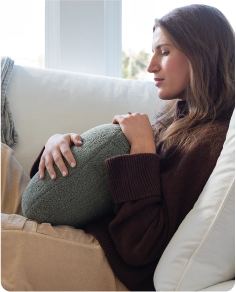
- Bonnie R
Consider Alternative Solutions
If you’re experiencing ongoing joint pain with the use of a weighted blanket, it’s time to consider alternatives. The Original Weighted Pillow by Quiet Mind offers the same deep touch pressure benefits without the risk of joint pain associated with a weighted blanket.
Holding, hugging, or squeezing a weighted pillow reduces stress and anxiety by lowering cortisol levels and supporting healthy sleep. Lay it across your chest to activate deep pressure stimulation, elevate your mood, and instill a sense of calm.
By activating deep pressure therapy with your weighted pillow, you can reduce tension in your body and lessen chronic pain. Placing your weighted pillow strategically can help minimize joint pain in sensitive areas like the spine, hips, and neck.
Our weighted pillows provide targeted, gentle pressure in a more versatile, compact form. They’re the perfect travel companion and on-the-go stress ball for your body. Whether you’re looking for better sleep, instant anxiety and stress relief, or a calmer state of mind, give the Original Weighted Pillow a squeeze and find relief without the risk of joint pain.



